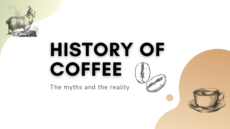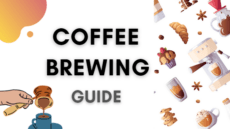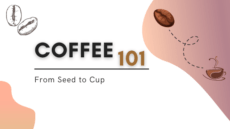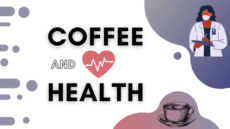For many of us, caffeine is “legal speed”, a perfectly acceptable guilty pleasure that we depend on to make it through the day. Yes, caffeine in coffee, tea, and soft drinks is perfectly legal, but it does receive its share of criticism.
How Was the Caffeine In Coffee Discovered?
Who thought it was a good idea to brew beans from a tree into a drink that would give them energy? Well, you can thank the ancient Ethiopians legend, where one Ethiopian goat herder saw his goats eating coffee berries off of the tree. You may be familiar with the fact that these berries can be opened and hold two coffee beans that are inside.
Nowadays, we grind these beans, and then we brew them into our coffee. Back then, people began eating these caffeinated beans, and the Ethiopians even rolled them in animal fat so that they could snack on them. An energy bar!
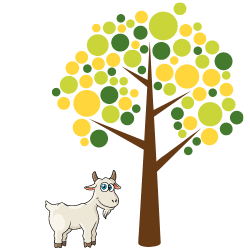
From there, the Arabs were able to discover that brewing the beans would cause them to be a healthy drink to keep you awake throughout the day. I am so glad that they were experimental enough to get this started because we can thank them for the ability to brew a cup of Joe today to begin your morning. Coffee has come a long way to becoming a cultural phenomenon in America. It all started with a humble goat to thank.
Visit our Coffee history article to learn more.
Your Caffeine Questions Answered
Caffeine was first isolated as a compound in the coffee way back in 1820. Today, it’s one of the most popular legal drugs for millions of Americans since it’s found in countless drinks, supplements, and medications.
But is it bad for you? Is it good? Should children drink it? What about pregnant women? What about the elderly? We’ll answer all of those questions and more in this article. We’ll also provide you with a complete breakdown of the caffeine contents of your favorite drinks, including coffee, so that you can gauge how much caffeine you consume each day.
How Much Caffeine Is Too Much?
How much caffeine you should drink is not a simple question. Every person is unique. You may have to adjust how much caffeine you consume each day in coffee, tea, chocolate, and soda until you feel alert in your waking hours and ready to sleep at night.
The FDA recommends the maximum amount of caffeine for a healthy adult is 400 mg per day.
source
This is the equivalent of roughly 5 cups of brewed coffee (8 oz.), 10 sodas (12 oz.), or 8 cups of tea (8 oz.). You can use the caffeine content chart below to add up how much caffeine you consume from different sources.
But what about the fact that more than a third of the workforce is drinking 2 cups of coffee a day at the bare minimum? Many coffee enthusiasts prefer to drink much more than a sparse 2 cups of Joe to get by.
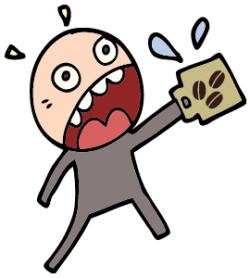
Coffee lovers, the choice is up to you. You can check out this extensive list of coffee health studies that will provide you with a complete breakdown of coffee health benefits you can receive cup by cup.
For example, drinking up to 6 cups of coffee a day could reduce the risk of diabetes by 22%; women who drink 4 cups of coffee a day are 20% less likely to have depression; men who drink 6 or more cups of coffee a day have a 20% reduced risk of prostate cancer.
Caffeine guidelines during pregnancy, while breastfeeding, and for children will vary considerably. Caffeine can be especially beneficial for the elderly to reduce the risk of dementia and Alzheimer’s disease, improve cognitive performance, prevent diabetes, protect the liver, and ward off cancer.
Depending upon a doctor’s advice, an elderly person could drink as much as 300 mg of caffeine a day, equivalent to 18 ounces of coffee.
How Much Caffeine Is In Coffee, Tea, Soda, and Chocolate?
This is a fascinating question, and you need to know if you are using coffee to get through your day. You may be interested in finding out that drip-brewed coffee has more caffeine than espresso because the coffee grounds stay in contact with the water for a more extended period, making them more caffeinated.
Here’s the answer you’ve been waiting for, a complete breakdown of the caffeine content of your favorite foods and drinks:
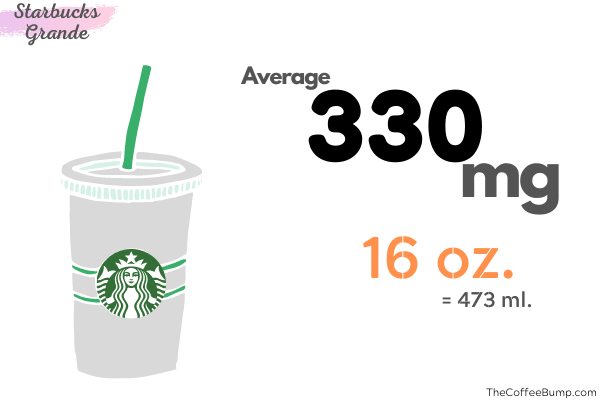
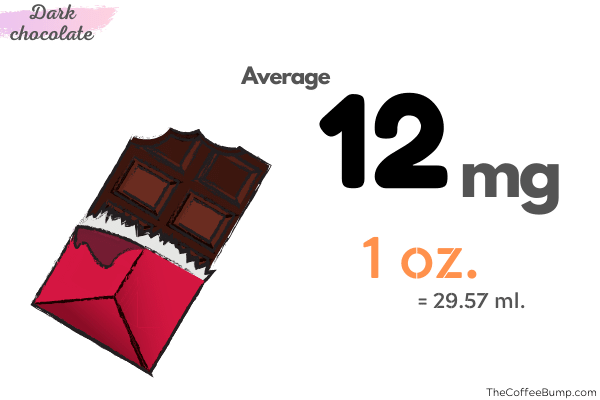
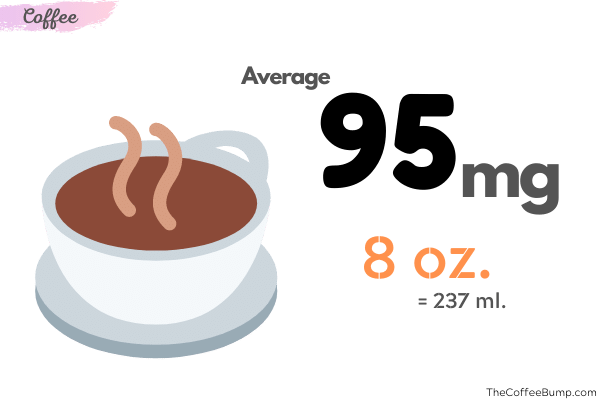
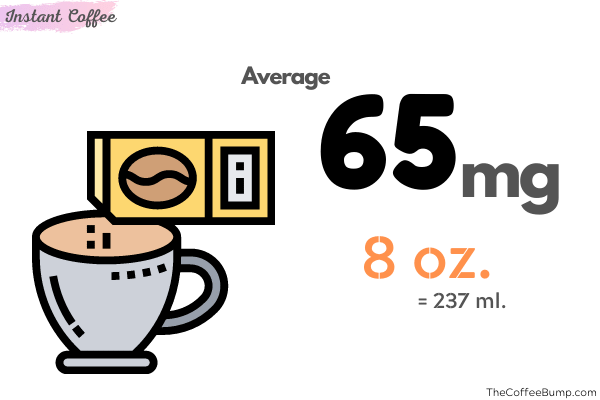
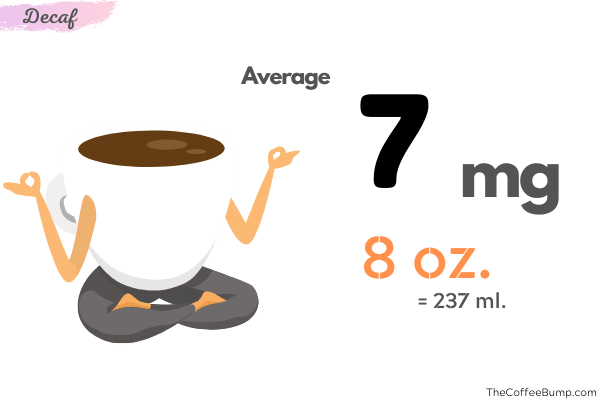
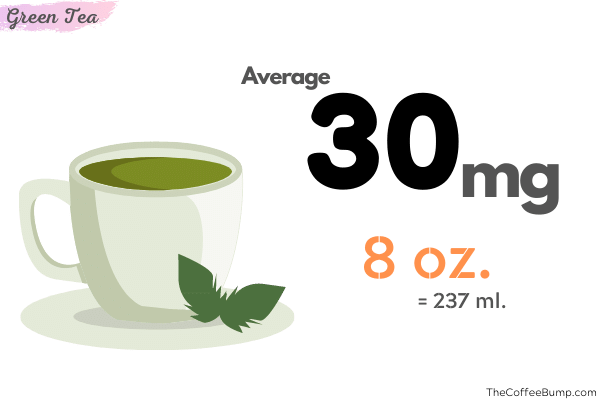
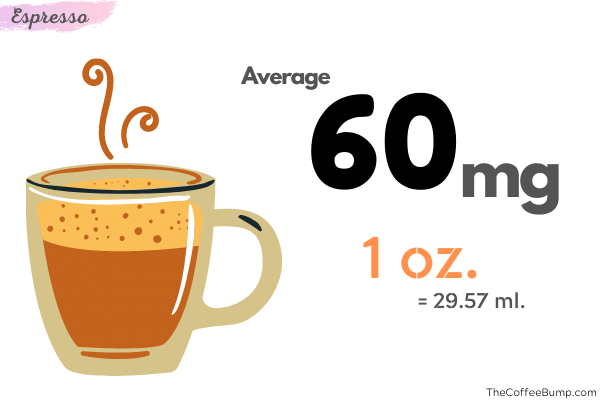
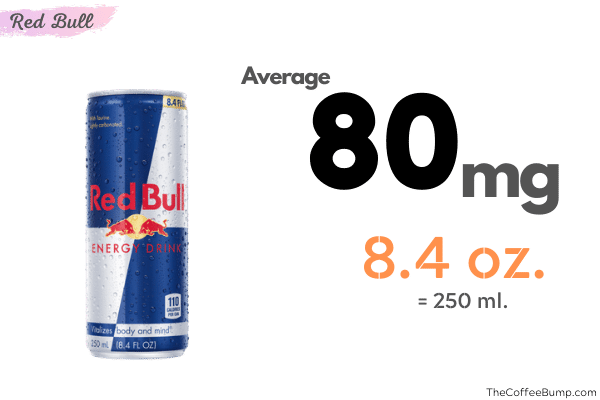
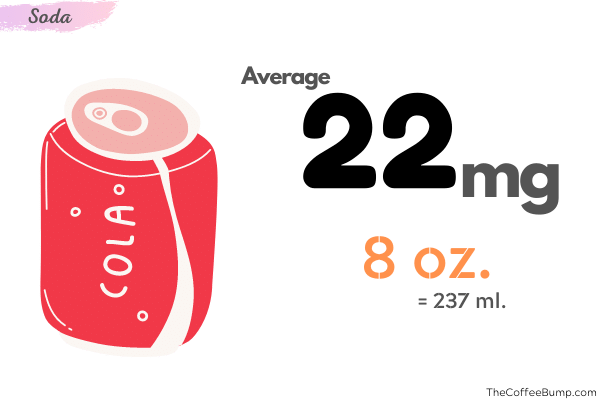
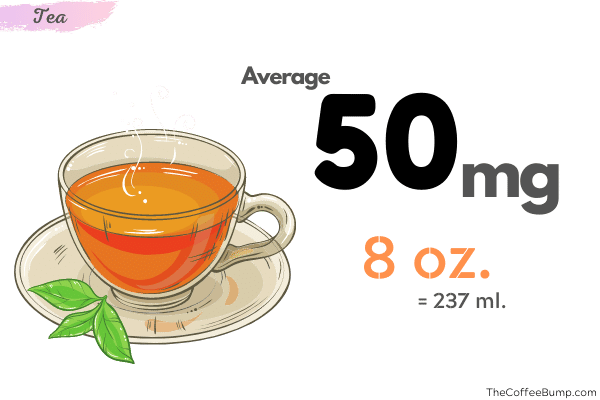
An 8-ounce cup of drip-brewed coffee will have anywhere from 60 to 140 mg of caffeine. A 2 ounce shot of double espresso will have 45 to 100 mg of caffeine. You can compare these amounts to a 12 ounce can of soda, which has around 35 mg of caffeine. As you can see, drip-brewed coffee packs the best punch, including other coffee brewing methods, like the French Press.
It is best to drink your coffee spread out throughout the day in small amounts so that you will stay energized and not experience any caffeine crashes!
Monitoring your daily caffeine consumption is an excellent habit. Drinking too much caffeine could lead to side effects like a rapid heart rate, anxiety, nausea, restlessness, difficulty sleeping, and even depression. Yet the many benefits of caffeine consumption to increase memory, detox the liver, improve alertness, relieve post-workout pain, prevent Alzheimer’s, and ease depression can’t be overlooked. The key here is moderation.
How Does Caffeine Affect Your Kids?
While most parents would frown upon giving a child a coffee, many parents won’t bat an eye at providing kids soft drinks full of sugar and caffeine. What’s the difference?
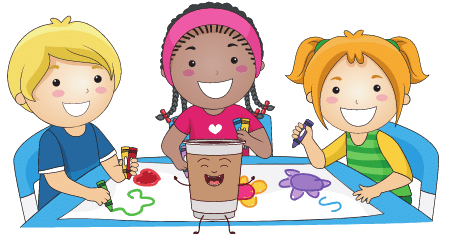
While there aren’t yet specific US guidelines for caffeine intake for kids, Canadian guidelines indicate that preschoolers should have no more than 45 mg of caffeine a day. This is the same amount of caffeine as a 16-ounce soda or four small milk chocolate bars.
But at a deeper level, it’s essential to understand precisely how caffeine affects kids as a stimulant. An excess of caffeine in children and adults can lead to:
- Nervousness
- Headaches
- Insomnia
- Rapid heart rate
- Difficulty concentrating
Monitoring your kids’ caffeine consumption could help them to maintain a healthy weight. Did you know that children who drink one or more 12 ounce soft drinks a day are 60% more likely to be obese? And with childhood obesity comes a long list of health issues, like sleep apnea, bone, and joint problems, and even type II diabetes.
Still, this doesn’t necessarily point to coffee as the culprit. When assessing how much caffeine your children intake each day, it’s essential to look at all sources – from coffee to soda to chocolate to energy drinks.
How Can Caffeine Impact Your Fitness?
Yes, believe it or not, one does have something to do with the other. Several important ways of drinking a cup of Joe can impact your next workout for the better.
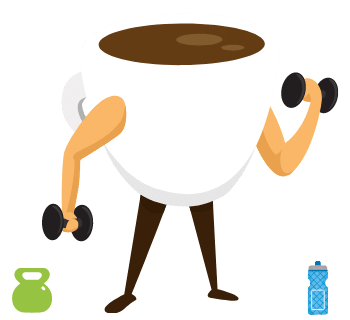
- Improve your breathing. According to a report released from Indiana University at Bloomington, drinking caffeinated coffee before a workout can reduce the instance of asthma symptoms caused by exercise. If you drink 2 cups of coffee an hour before you run or jog, it will work just as well as using an inhaler to open restricted airways.
- Reduce sore muscles. Suppose you suffer from chronic muscle cramps each time you work out. In that case, coffee could provide the relief you are looking for, according to research from the University of Georgia in Athens. Study participants who drank the equivalent of 2 cups of coffee a day after working out their quads from doing exercises like squats experienced 48% less pain in their legs within just an hour. Scientists have discovered that caffeine blocks receptors in the body that release a chemical known as adenosine, which causes sore muscles.
- Workout stronger for longer. Perking up with coffee before an exercise could help to improve your stamina. For the best results, drink coffee and eat a snack high in carbs to keep your energy levels stable the next time you exercise.
Caffeine Withdrawal
I know that we are not a well-known medical site to talk about this information. Still, we have collected for you the broad lines of the significant medical sites related to caffeine withdrawal.
Well, when caffeine becomes an essential part of your day, breaking this habit can cause withdrawal symptoms that begin within 12 to 24 hours of your abstaining from coffee or caffeine in general.
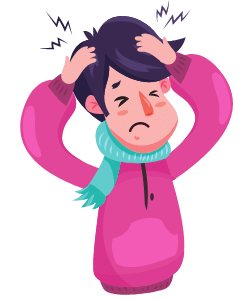
Caffeine Withdrawal Symptoms?
Here is a list of the 5 most common caffeine withdrawal symptoms:
- Headache
- Nausea and Vomiting
- Anxiety
- Mental Fogginess
- Irritability
What to Do About Coffee Withdrawal Headaches?
If you are a coffee drinker who is worth your salt in any way, then I’m sure you, too, have suffered from a pounding or splitting headache when you skip your morning coffee. That’s the worst! The news about this fact is that studies have proven that a caffeine headache is a legitimate side effect of coffee drinkers’ withdrawals.
These coffee drinkers also experienced fatigue, low energy levels, and problems concentrating in addition to their caffeine withdrawal headache. The good news for you is that you can stop this problem with some smart planning before it starts.
First, make sure that you drink more than enough water throughout your day.
Second, you can also take some advice that I published in a previous blog, which is to divide up your coffee drinking throughout the day to not experience any dips or crashes in your energy level.
Coffee is your friend, so use it to treat yourself right!
How Long Does Caffeine Withdrawal Last?
Withdrawal symptoms from caffeine may last for 20 to 50 hours.
Caffeine Facts and Myths
If you’re a regular coffee drinker, then you probably have a love affair with your morning caffeine by now. Yet many people across the US have common misconceptions about caffeine, so let’s find out caffeine’s truth in the following lines.
10 Intriguing Facts About Caffeine
How much do you really know about your favorite legal drug of choice? Read on to find out.
- 90% of Americans consume caffeine each day.
- 32% of workers in the US depend on coffee to make it through the day.
- 37% of workers in the US drink a minimum of 2 cups of coffee in their workday.
- The top four caffeine sources in the US diet are coffee, sodas, tea, and chocolate.
- Caffeine takes as little as 15 minutes to reach your bloodstream.
- The effects of caffeine can last for up to 3 1/2 hours.
- Caffeine increases dopamine levels to make you feel happy.
- Caffeine affects the same part of the brain as cocaine, heroin, and amphetamines.
- Caffeine withdrawal can begin 12 hours after consumption.
- A lethal dose of caffeine is the equivalent of 100 cups of coffee in 4 hours.
Pound for pound, kids can easily consume as much caffeine from soda and chocolate as their parents do from coffee.
10 Caffeine Myths BUSTED
With all that we know about caffeine today, rumors still run rampant. Check out these common caffeine myths to make sure that you have your facts straight:

- Caffeine Is Addicting – Caffeine is a central nervous system stimulant that may only cause mild dependence in some people.
- Caffeine Is Dehydrating – Researchers confirm that coffee can count toward your daily fluid intake in moderate amounts.
- Caffeine Causes Heart Problems – While caffeine will stimulate the heart and may worsen heart disease symptoms, it won’t cause heart problems.
- Caffeine Causes Hypertension – Does caffeine raise blood pressure? Caffeine will temporarily increase blood pressure, but it won’t cause long-lasting health issues.
- Caffeine Causes Insomnia – Drinking 1 to 2 cups of coffee in the morning hasn’t been proven to disrupt sleep at night.
- Caffeine Causes Osteoporosis – Caffeine may increase calcium and magnesium excretions in urine, but its effects on bone loss are negligible.
- Caffeine Causes Cancer – Contrary to popular belief, research suggests that caffeine could protect against certain cancer types.
- Caffeine Contributes to Infertility – Research hasn’t found a link between caffeine consumption and difficulty conceiving, miscarriage, premature birth, congenital disabilities, or a low birth rate.
- Caffeine Is Unhealthy – Not necessarily; some studies have proven the positive benefits of caffeine to prevent colorectal cancer, type II diabetes, Parkinson’s disease, and more.
- Caffeine Sobers You Up – If you drink caffeine after boozing, you may feel soberer, though you’ll still be just as impaired behind the wheel.
Does Caffeine Improve Work Performance?
This is an exciting topic, and it turns out that the answer is yes! I know everyone is currently celebrating this news, but let me explain the science behind this process.
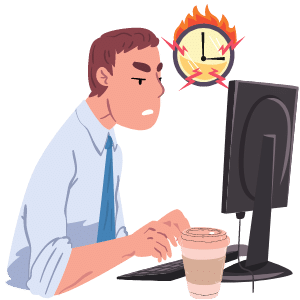
Caffeine is actually a stimulant, so it will work to improve your focus and increase your attention span. This is precisely why coffee is proven to improve mental performance and elevate mood, making it perfect for the work environment.
The best way to drink your coffee is to have a cup of Joe at the beginning of the day, so the caffeine can directly move to your brain within 20 minutes. This remarkable effect will last for up to six hours, which is precisely why it is recommended to split up your coffee consumption so that you can have these benefits all day long without a nasty caffeine crash.
Furthermore, when you’re ending your productive workday thanks to your beloved coffee, be sure to have another cup before you go to the gym because caffeine and coffee also improve physical performance. You can work out more substantial and harder with better results, all thanks to a little Java that goes a long way!
What on Earth Is a Caffeine Nap?
Caffeine and naps may seem like opposites at first glance. After all, the whole purpose of caffeine is to keep you awake. Right?
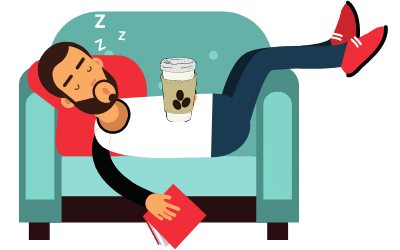
But scientists recommend a little something called a “caffeine power nap.” Basically, it helps to drink coffee or a caffeinated beverage before taking a nap. By the time that the caffeine has taken effect in your body, you will likely be fast asleep or ready to wake up.
Are you still confused? It takes about 20 minutes for caffeine to take effect in your body. Total caffeine absorption takes roughly 45 minutes. So, if you drink a cup of coffee and then fall asleep immediately, the caffeine in the coffee won’t affect your ability to drift off to sleep. And by the time that you wake up from your catnap, you should feel less exhausted and much more alert as the caffeine infiltrates your system.
According to researchers at Loughborough University, study participants who were given caffeine immediately before a power nap outperformed other participants who were given a placebo before taking a nap.
Granted, it does take some planning to drink caffeine successfully before a power nap. If you don’t take a nap right away, you will likely crash after drinking a coffee cup and could end up more tired than when you started.
The 411 on Caffeine and Your Health
For so many of us out there who need a daily dose of caffeine to get our fix, it is essential to determine how caffeine impacts your health.
Here are some fun facts you need to know about caffeine:
- Caffeine is white and bitter-tasting in its natural form. Many caffeinated beverages have a dark color, yet actual caffeine is white and crystalline. In fact, dark roasted coffee has less caffeine than lightly roasted coffee since more caffeine is burned out in the longer roasting process.
- Caffeine increases dopamine to improve your mood and increase alertness. When caffeine is consumed as a liquid, it reaches the body’s tissues within 5 minutes, and peak levels in the blood are experienced within 30 minutes.
- Caffeine does cause some side effects. Drinking 1 to 2 cups of coffee can increase the rate of breathing, increase metabolism, increase urination, and increase gastric acid in the stomach. Large doses of caffeine could cause convulsions, a rapid heartbeat, jitters, and headaches.
- Caffeine is used for medicinal purposes. Caffeine is often used in headache medications and prescription pain relievers. Caffeine also stimulates breathing in newborn babies to treat apnea, a condition where a newborn baby stops breathing.
Believe it or not, you can have a healthy relationship with caffeine. Enjoy it in moderation, and don’t overdo it!
Updated for 2023.
FAQ
Is Caffeine Good For You?
We all know that coffee has a high amount of caffeine in it, so if you are concerned about how caffeine may be affecting your health, then I am here to tell you the 411. Firstly, caffeine is excellent for people suffering from asthma or migraine headaches. Caffeine is a bronchodilator, so it will alleviate symptoms of wheezing or chest tightening. It also works to stop the effects of migraines.
On the flip side, you may experience a caffeine withdrawal headache if you cut it out of your life cold turkey, so be sure to enjoy your coffee in moderation. It is also possible to overdo it with your caffeine consumption, causing you calcium depletion, anxiety issues, or high blood pressure. The answer to the question is moderation, moderation, moderation! Suppose you curb your Java consumption to up to 4 cups a day. In that case, you will be on the road to excellent health because coffee and caffeine have numerous wellness benefits to offer you. Hurrah!
How Long Does Caffeine Last?
Well, this varies from person to person. But for the average time that caffeine spends in your system ranges from 5 to 6 hours. Then your liver will start converting it into caffeine metabolites.
How Many mg Of Caffeine In a Cup Of Coffee?
If you googled this question, you would find that the first answer is 8 oz. of coffee contains 95 mg of caffeine, the average. The exact number depends on several factors, including the type of coffee beans, the degree of roasting, and other small factors while brewing.
So the answer is, any cup of coffee contains between 60 to 140 mg of caffeine. Head to our coffee basics article to know more.
How Much Caffeine In Decaf Coffee?
Your search for this question makes you one of the few who discovered that decaf coffee actually contains some caffeine.
Although up to 97% of the caffeine in decaffeinated coffee has been removed, an 8 oz. of coffee contains about 3 to 7 mg of caffeine.
How Much Caffeine In Espresso?
Espresso contains more caffeine than other brewed coffee, obviously! for 30 grams or 1 oz, of espresso there equivalent of 40 to 60 mg of caffeine.
How Much Caffeine In The Red Bull Energy Drink?
There are rumors that Red Bull has a high percentage of caffeine, but the truth is that the amount of caffeine is close to the amount found in home-brewed coffee.
The 250 ml can (8.4 oz.) of Red Bull energy drink contains 80 mg of caffeine.

